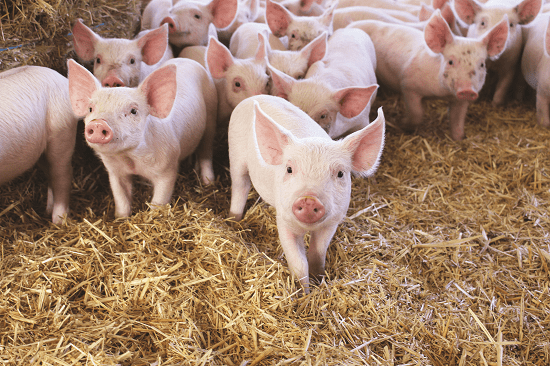ABOVE: A report on the potential economic consequences to the Australian economy of an African swine fever incursion was released several weeks ago. pig
The recent interception and seizure of 36 tonnes of prohibited goods by the Department of Agriculture, Fisheries and Forestry as part of Operation Avoca – together with the declaration by the Indonesian Government on April 5, 2023 that foot and mouth disease is now endemic in Indonesia – highlights that constant vigilance is needed to mitigate the entry of exotic diseases into Australia.
These, as well as many other issues, emphasise the need for enhanced biosecurity practices by primary producers and all other land managers.
In addition to having property biosecurity plans in place, it is also important that these plans are supported by pest animal management plans.
The National Feral Pig Action Plan team is currently developing practical online feral pig management plan templates for use by both individual land managers and community-led groups to assist with preparing their plans.
Once available, these will be housed on the website.
Several weeks ago, the Australian Bureau of Agricultural Resource Economics and Sciences released its report estimating the potential economic consequences to the Australian economy of an African swine fever incursion.
Three scenarios were assessed, two of which involved feral pigs:
- A small-scale outbreak in commercial pigs, followed by eradication
- A small-scale outbreak in feral pigs, followed by eradication
- ASF becoming endemic in feral pigs.
For these three scenarios, cost estimates were:
- $117 million to $263 million for a smallscale outbreak of ASF in domestic pigs followed by eradication
- $101 million to $127 million for a smallscale outbreak of ASF in feral pigs followed by eradication
- Between $0.4 billion and $2.5 billion if ASF were to become endemic in feral pigs.
These estimates include costs of eradication, costs to industry until ASF is eradicated – including export market access closures and potential declines in consumer demand for pork and pork products – and long-term costs if it was determined that eradication was economically or technically infeasible.
Costs of resources needed to carry out the eradication accounted for a large majority of these estimates. Impacts on social assets were not quantified.
For ASF to be eradicated, it was highlighted that:
- Feral pig population reduction strategies must be employed, involving the effective use of a combination of best practice management methods
- Contaminated feral pig carcasses and materials such as soil must be identified, collected and correctly disposed of – this is not likely to be easy, particularly if ASF has affected feral pigs in remote areas that cannot be readily accessed on-ground
- Ongoing monitoring and surveillance of feral pig populations will be required to demonstrate proof of freedom.
The full report and summary can be found here – agriculture.gov.au/abares/research-topics/biosecurity/biosecurity-economics/potential-economic-consequences-of-african-swine-fever-in-australia
 National Feral Pig Conference 2023
National Feral Pig Conference 2023
I am pleased to announce that the National Feral Pig Conference 2023 will be held on June 20-21, 2023 at the Shangri-La Hotel in Cairns.
This conference will be a great opportunity for all those working with or managing feral pigs across Australia to come together, share insights and discuss practical approaches to increase the effectiveness and efficiency of feral pig management programs to reduce feral pig damage.
If you or anyone you know is interested in attending, the registration details can be found at feralpigs.com.au/national-feral-pig-conference-2023
Calls for abstracts close on May 12, 2023. Costs to attend the conference in person will be $350 including dinner or $75 for virtual registration.
If you would like to support the conference, a range of sponsorship options are available via our conference sponsorship and exhibitor prospectus – feralpigs.com.au/wp-content/uploads/2023/04/National-Feral-Pig-Conference-Sponsorship-Prospectus-April-2023-1.pdf
Program details will be uploaded to the website shortly. Finally, we are seeking feedback from all those dealing with feral pigs on the National Feral Pig Action Plan’s implementation and progress made to date, to improve on its delivery moving forward.
The stakeholder satisfaction survey can be found via surveymonkey.com/r/NFPAPsurvey2023 and will take around 10 minutes to complete.
The survey will close on May 5, 2023.
Get in touch via heather.channon@feralpigs.com.au if you would like to discuss any of the above topics.
Heather Channon
National Feral Pig Management Coordinator







